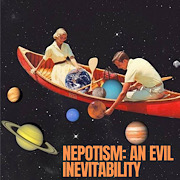|
Fish of hemp posted:How did slavery became a major economic model in Americas? Because as I understand it, direct slavery had "fell out of fashion" in Europe in favor of serfdom and guilds and church didn't find it very christian. So how did it happen again in the new world? Briefly, as the medieval period went on, slavery of fellow Christians was condemned but it was justified as perfectly fine to do it to heathens and there were thriving slave markets in the Mediterranean (eg I think the Knights Hospitaller operated markets for muslim slaves on Malta). There was a big market for European slaves in North Africa too - basically any sea power there, European or African, Christian or Muslim, was engaged in slavery. When colonisation of the Americas began it seemed natural to many colonisers to enslave non-Christian natives, and the emerging liberal middle class had an economic interest in justifying it too (see Locke etc). It's not much of a leap to say that the emergence and increasing popularity of liberal ideas was partly because of the 'property rights' stuff that also involved slave owning and was key to the development of colonial economies. Losurdo talks a bit about this in Liberalism: A Counter-History. Also, in the early modern period, a lot of European powers used convicts as galley slaves, making them row their warships (this wasn't just hard work, it was also extremely dangerous, and galley slaves often went down with the ship because they were chained to the oars). John Charity Spring has issued a correction as of 13:05 on Nov 20, 2021 |
|
|
|

|
| # ? Jun 10, 2024 21:09 |
|
Real hurthling! posted:romans used the maniple formation to break the phallanx The Macedoian style pike phalanx also was really ineffective on non-ideal terrain and had the additional weakness of not being able to react to new battle developments. It was pretty much fire and forget, which meant into huge problems against the more flexible roman system. The Romans had another big advantage in that they avoided the whole Hellenic "lead from the front mentality" and instead had their commanders riding around behind the main battle formations. This gave them another big advantage of being adjust and adapt on the fly on the battle progressed.
|
|
|
|
Fish of hemp posted:How did slavery became a major economic model in Americas? Because as I understand it, direct slavery had "fell out of fashion" in Europe in favor of serfdom and guilds and church didn't find it very christian. So how did it happen again in the new world? Protestants.
|
|
|
|
You might want to look up Spain.
|
|
|
|
colonialism only works if the colossal, state level expenditure comes with colossal, state level returns. and it's all correlated - the triangle trade, for example, demonstrates that you steal whatever happens to be available for stealing, you process it in the imperial core and then resell it to another colonial endeavour.
|
|
|
|
Communist Thoughts posted:that debt book seems pretty good, anyone got any other good history deep dive books?  https://en.m.wikipedia.org/wiki/The_Cheese_and_the_Worms
|
|
|
|
https://twitter.com/Foone/status/1014245669660385281 This thread goes places.
|
|
|
|
Platystemon posted:This thread goes places. foone threads often do, and it rules that they get posted across so many topics that aren't retrocomputers or digital archiving
|
|
|
|
Fish of hemp posted:How did slavery became a major economic model in Americas? Because as I understand it, direct slavery had "fell out of fashion" in Europe in favor of serfdom and guilds and church didn't find it very christian. So how did it happen again in the new world? north america had massive amounts of unexploited resources, but the plagues and genocides had rendered the native population too small to be a viable workforce in the long run and you couldn't exactly start shipping over your own peasants en masse because they were kinda needed at home, so the slave trade provided an elegant solution to this problem. a lot of ink was actually spilled over this very question back in the early days of colonialism but in the end the slavers won out because they brought in a fuckton of money so basically proto-capitalism ended up reinventing the slave economy because as always the material base ultimately shapes the ideological superstructure into a form that fits its needs Cerebral Bore has issued a correction as of 19:34 on Nov 20, 2021 |
|
|
|
Fish of hemp posted:How did slavery became a major economic model in Americas? Because as I understand it, direct slavery had "fell out of fashion" in Europe in favor of serfdom and guilds and church didn't find it very christian. So how did it happen again in the new world? To put it simply, Mexico, Guatemala and Peru had large populations of native Americans and so even with the genocidal campaigns of the conquistadors, there was plenty of labor. The surviving natives were held in feudal serfdom on the land grants that the conquistadors awarded themselves, so there wasn't as much a need for imported labor. However, in the Caribbean and in North America, where the genocides were near total, there wasn't as much labor to exploit, so the colonists had to import labor. And since conditions were really really bad, forced labor was the model they chose.
|
|
|
|
sullat posted:To put it simply, Mexico, Guatemala and Peru had large populations of native Americans and so even with the genocidal campaigns of the conquistadors, there was plenty of labor. The surviving natives were held in feudal serfdom on the land grants that the conquistadors awarded themselves, so there wasn't as much a need for imported labor. However, in the Caribbean and in North America, where the genocides were near total, there wasn't as much labor to exploit, so the colonists had to import labor. And since conditions were really really bad, forced labor was the model they chose. Especially in the Caribbean. The sugar plantations were so dire they never got births to exceed deaths so they had to import people right up until the end. Sugar was unbelievably brutal. All slavery was but I think the sugar plantations are up there for the very worst of it
|
|
|
|
mawarannahr posted:This is a classic Just got this from the library. Thanks for the rec, sounds interesting.
|
|
|
|
HashtagGirlboss posted:Especially in the Caribbean. The sugar plantations were so dire they never got births to exceed deaths so they had to import people right up until the end. Sugar was unbelievably brutal. All slavery was but I think the sugar plantations are up there for the very worst of it And I should also say one of the reasons we don't call the forced labor of Native Americans in the Peruvian silver mines or the Mexican ecomienda system slavery is that a bunch of people with a lot of letters after their name solemnly swear that it isn't slavery for *reasons*.
|
|
|
|
Cerebral Bore posted:north america had massive amounts of unexploited resources, but the plagues and genocides had rendered the native population too small to be a viable workforce in the long run and you couldn't exactly start shipping over your own peasants en masse because they were kinda needed at home, so the slave trade provided an elegant solution to this problem. a lot of ink was actually spilled over this very question back in the early days of colonialism but in the end the slavers won out because they brought in a fuckton of money So w/r/t to mass shipping over your own peasants - that was practiced in North America. Morgan's American Slavery, American Freedom discusses at length the rise of slavery, which had less to do with slavers being a distinct class of people from some other group of plantation owners than with the economics of paying for an English peasant to come over vs buying an enslaved person from Africa changing to make the latter more profitable over time. I'd also say that it's less a reinvention than just an invention of a somewhat different way of building a slave economy. Slave economies are generally unsustainable above 30% slaves, and there's really just two exceptions that tend to come to mind - aforementioned colonies, and Sparta. And the colonies are not really fully independent economies, like the sugar plantations of the Carribbean are not economies independent of the European countries that held them. Sparta is such a different beast, what with being a fully terror state, and we see that it enters a demographic decline as soon as they enter the historic record and never leave until the total end of their independence. Plus I guess I just think it's very different to have this insane import slaves export cash crops strategy. Like as much as Rome or the Hittites needed slaves for their economy, its a very different economy when you're going on periodic wars to bolster your production of subsistence goods rather than having a predictable in-out factory esque flow at the level of a not really fully independent economy.
|
|
|
Tulip posted:One of my weird pedantic things is that I hate the portrayal in video games that slingers are just primitive, short range archers. Slings have crazy range and absolutely will kill people! They're a really useful weapon that armies frequently gave to even their heavy infantry (mostly for hunting). The pro-con of slings isn't just "if you aren't smart enough to make bows, you use slings." You should play A Plague Tale: Innocence.
|
|
|
|
|
Alhazred posted:You should play A Plague Tale: Innocence. Was funny how ancient slinger would put insults on the projectiles like your mom jokes or just "Ouch" https://www.youtube.com/watch?v=3uDtrwNY0Zk https://www.youtube.com/watch?v=ojtZakKT5FE
|
|
|
|
when did galley slaves become a thing? I thought during the classical era galley oarsmen were often required to be paid freemen bc there was a lot of discipline and coordination necessary to effectively row a galley. did early modern galleys have a different configuration that didnít require as much training or skill?
|
|
|
|
Fish of hemp posted:How did slavery became a major economic model in Americas? Because as I understand it, direct slavery had "fell out of fashion" in Europe in favor of serfdom and guilds and church didn't find it very christian. So how did it happen again in the new world? The sources of labour in the New World were pretty limited. If you look at early European colonies, Europeans were dying in droves because the Americas were basically completely alien to the settlers, and it was a slow, arduous process to learn how to survive on the land with limited access to agriculture imports from Europe. The profitable forms of intensive agriculture crops like sugar and tobacco were also incredibly labour intensive if not downright deadly. Look up the stats for how long people survived in the sugar plantations in Brazil, it's truly horrific. So what do you do? Europeans are dying in droves, and since the Spanish have found tremendous amounts of precious metal, looking for more of that is way more compelling that toiling in some plantation fields, especially since you're probably going to die to a tropical disease. Well you can ensalve the locals, who aren't Christian, so who cares? Well that works for a short amount of time, except the Indigenous people do know how to survive quite well in the Americas and develop a technique called "running away" with very little in the way to stop them. The rest succumb to disease because they have no immunity to your demon cracker plagues. But Africans aren't as susceptible to malaria. Early indentured servants and transplants from Africa thrive, and it's possible to procure African slaves from the local rulers along the west coast of Africa, so that becomes a ready, ample supply of labour for anyone with ambitions to grow in-demand crops in the Americas. It's not cheap at first, but the amount of money to be made helps drive the growth of the slave trade and all its monstrous consequences. As Charles Mann points out, the regions where slavery becomes institutionalized (as opposed to where it exists for a time and then eventually is replaced with other forms of labour) in the Americas aligns very closely with the contients' malarial zones. Africans also would have the same problem as Europeans in surviving in the alien environment, so running away was much less of a problem from the perspective of the slave owners, although many were able to run away and form free slave communities with Indigenous communities. Dreylad has issued a correction as of 06:27 on Nov 21, 2021 |
|
|
|
I would simply not import malaria.
|
|
|
|
FrancisFukyomama posted:when did galley slaves become a thing? I thought during the classical era galley oarsmen were often required to be paid freemen bc there was a lot of discipline and coordination necessary to effectively row a galley. did early modern galleys have a different configuration that didn’t require as much training or skill? You're correct that galleys were crewed by freemen in the ancient era. The switch to slaves occurred in the 14th-15th centuries during the wars between the Ottomans and the christian Mediterranean powers.
|
|
|
|
Speleothing posted:You're correct that galleys were crewed by freemen in the ancient era. The switch to slaves occurred in the 14th-15th centuries during the wars between the Ottomans and the christian Mediterranean powers. wonder if the plague had anything to do with it. cant imagine a better place to get sick and die than on a crowded below deck galley bench
|
|
|
Real hurthling! posted:wonder if the plague had anything to do with it. cant imagine a better place to get sick and die than on a crowded below deck galley bench Does anyone know of a book that analyzes the Black Death and specifically the aftermath through an explicitly class-based lens (sorry I don't know the right terms). I read The Great Mortality by John Kelly a while back and it was great, but it felt like he just wasn't willing or able to go far enough.
|
|
|
|
|
Azathoth posted:Does anyone know of a book that analyzes the Black Death and specifically the aftermath through an explicitly class-based lens (sorry I don't know the right terms). I read The Great Mortality by John Kelly a while back and it was great, but it felt like he just wasn't willing or able to go far enough. Graeber's books talk about it kind of through the lens of labour power, but it's not the focus of his books. I don't know of any else though, sorry.
|
|
|
|
I only gave this a skim, but it might be what you're looking for: Cohn, Samuel. "After the Black Death: Labour Legislation and Attitudes Towards Labour in Late-Medieval Western Europe," Economic History Review (2007) 60#3 pp. 457–485 in JSTOR
|
|
|
|
Very cool, and yeah, probably right what I'm after. Thanks!
|
|
|
|
|
https://twitter.com/OptimoPrincipi/status/1462848275879448578/photo/1
|
|
|
|
CoolCab posted:colonialism only works if the colossal, state level expenditure comes with colossal, state level returns. and it's all correlated - the triangle trade, for example, demonstrates that you steal whatever happens to be available for stealing, you process it in the imperial core and then resell it to another colonial endeavour. I understand British India lost money for the state and lasted for quite a while. It made a great deal of money for some rich people though. Tulip posted:So w/r/t to mass shipping over your own peasants - that was practiced in North America. Morgan's American Slavery, American Freedom discusses at length the rise of slavery, which had less to do with slavers being a distinct class of people from some other group of plantation owners than with the economics of paying for an English peasant to come over vs buying an enslaved person from Africa changing to make the latter more profitable over time. How would you distinguish helots from medieval European serfs?
|
|
|
|
Weka posted:How would you distinguish helots from medieval European serfs? Helotry was maintained by a deliberate campaign of mass terror, murder, and can be distinguished by its extreme dearth of economic, political, or physical autonomy. Helot rape was so common that the Spartan state came up with specific social castes to permanently mark people whose ancestors included helots that were raped. Also helots were property of the state of Sparta even when serving specific aristocrats, which is...let's just say an interesting twist, compared to the relative decentralization of authority of anything in medieval Europe. Serfdom is a far less specific category as we're referring to a wider range of time and also many different countries on top of serfs having significant delineation within serfdom (at least within Russia, I'm a lot less familiar with this stuff), so anything I could say about serfdom could be trivially said to be wrong on account of the high degree of variability. Nevertheless I've never seen implications that serfdom was maintained by a constant campaign of disgenics and murder, and I generally see it taken for granted that slaves are if not distinct from serfs then they are not 100% of serfs, while the historic evidence we have for helotry is that helotry was considered distinctly worse than other forms of slavery by Ancient Greeks. Within the abominable field of ancient treatments of enslaved people, helotry stood out. Here's Plutarch on the matter: http://www.perseus.tufts.edu/hopper/text?doc=Plut.%20Lyc.%2028 Weka posted:I understand British India lost money for the state and lasted for quite a while. It made a great deal of money for some rich people though. Oh for sure. Rationales for maintaining British colonialism in India could get very complicated because it was always facing down the pretty well known balance sheet problems. Tulip has issued a correction as of 22:19 on Nov 22, 2021 |
|
|
|
There's something nice about this. I wonder if he also made the sausage or only sold it but either one, I'd like to be known for my food and friendship.
|
|
|
|
|
before you get too excited, my man alex died at the nadir of sausage history. they were banned by constantine in 320ce for being a sinfully delicious staple of pagan holiday feasts. it would be sad if he died because he lost everything or was murdered by black market sausage bootleggers
|
|
|
|
or so they say i dont think theres actually any proof the byzantines banned blood sausage production with harsh penalties due people getting sick tho. theres proof on that. the constantine one seems far fetched but its like a viral meme online Real hurthling! has issued a correction as of 00:32 on Nov 23, 2021 |
|
|
|
Weka posted:I understand British India lost money for the state and lasted for quite a while. It made a great deal of money for some rich people though. The first colonial possession of the BEIC was Bengal which was the richest and most productive province of the Mughal Empire.
|
|
|
|
Good Soldier Svejk posted:There's something nice about this. I wonder if he also made the sausage or only sold it but either one, I'd like to be known for my food and friendship. i was just imagining a hot dog cart guy in a toga
|
|
|
|
https://twitter.com/litteracarolina/status/1463147054142787592?s=21
|
|
|
|
https://twitter.com/AlisonFisk/status/1463977424732004352?s=20
|
|
|
|
|
choosing the interpret that as there being older board games that were just complete rear end.
|
|
|
|
Peasant game of Ur was just throwing donkey poop at a plank and you had to provide your own plank AND donkey poop
|
|
|
|
Pascallion posted:choosing the interpret that as there being older board games that were just complete rear end. literally yes. we have examples of Egyptian board games it competed with and they sucked, no strategy at all, arbitrary and harsh flavour religious rules, the outcome being decided a fraction of the way into the intolerably long game. monopoly comes from an ancient lineage.
|
|
|
|
CoolCab posted:literally yes. we have examples of Egyptian board games it competed with and they sucked, no strategy at all, arbitrary and harsh flavour religious rules, the outcome being decided a fraction of the way into the intolerably long game. monopoly comes from an ancient lineage. there is a reason why people just played dice until chess really took off
|
|
|
|

|
| # ? Jun 10, 2024 21:09 |
|
Itís 4500 years old and still has all the pieces and you guys are still complaining
|
|
|











































